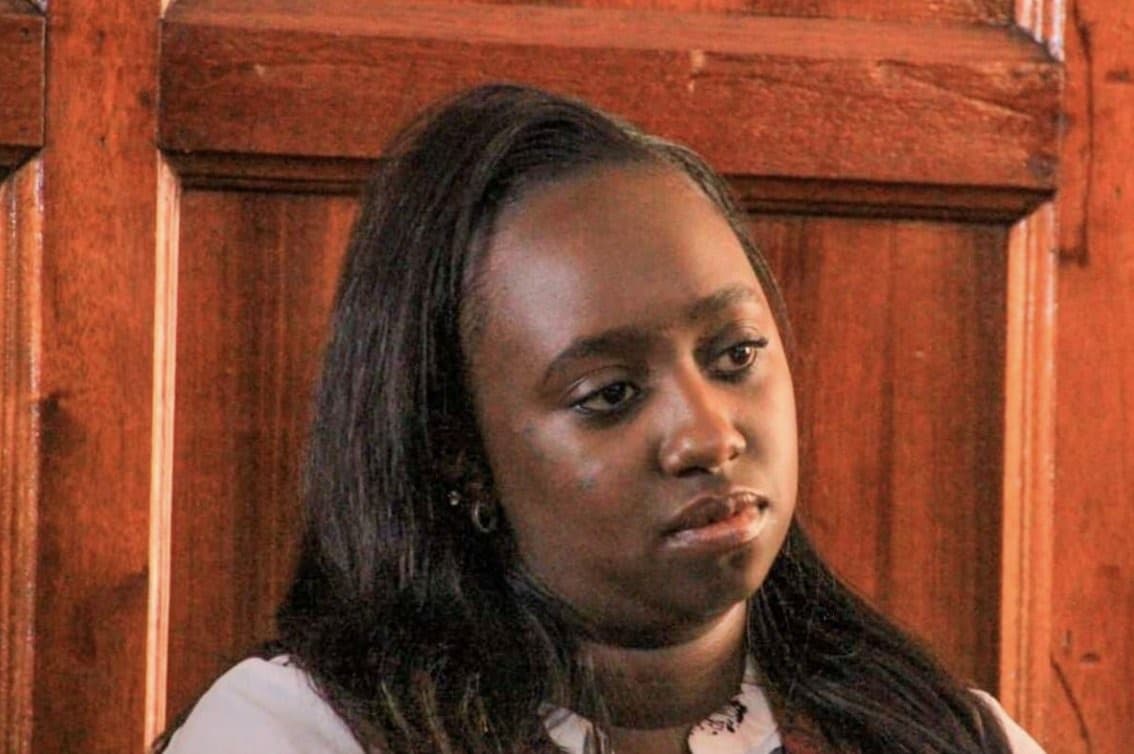We're loading the full news article for you. This includes the article content, images, author information, and related articles.
A police investigator's testimony reveals the murder charge against rally driver Maxine Wahome was influenced by the deceased's family, shaking the foundation of the prosecution's case.

NAIROBI, KENYA – The murder trial of celebrated rally driver Maxine Wahome took a dramatic turn on Tuesday, November 25, 2025, after a police officer testified that she was pressured to charge Wahome with the murder of her late boyfriend, Assad Khan. Corporal Diana Angote, the investigating officer, told the Milimani High Court that the decision was made under duress from Khan's family, particularly his brother, Adil Khan, and before crucial evidence was available.
In a stunning admission before High Court Judge Lilian Mitende, Corporal Angote stated that charging Wahome with murder was a mistake. She revealed that the charge was filed on March 15, 2023, a full six months before the Government Chemist's report on samples from the scene and Khan's body was received. When asked by Wahome's lawyer, Senior Counsel Philip Murgor, if she would have pressed murder charges had she seen the report first, Angote unequivocally said no.
The government analyst's report later showed traces of alcohol and the anesthetic drug ketamine in Khan's system, substances which experts testified could lead to violent and hallucinogenic behavior. “As a result of taking the drug mixed with whisky, it caused Assad to behave like ‘Superman’,” government analyst Dr. M. Muthini had testified earlier in the trial, suggesting Khan's intoxicated state led him to injure himself.
Assad Khan, also a rally driver, died on December 19, 2022, after succumbing to injuries sustained during an incident at his Kileleshwa apartment on December 12, 2022. The prosecution has contended that Wahome intentionally caused the fatal leg injury. However, the defense has consistently argued that Khan, who had a history of abusive behavior, injured himself by kicking a glass door during a violent altercation with Wahome.
Testimonies from multiple witnesses have painted a picture of a volatile relationship. The chairman of the apartment complex, Samuel Kimani Kihanya, testified in September 2023 that Khan was known to be violent towards his girlfriends and that guards had reported numerous fracases at his residence. Another neighbor recounted hearing sounds of a struggle on the morning of the incident, with Khan yelling and Wahome crying.
In a video played in court, a distressed Wahome is seen telling her father and police, "Daddy, he cut himself. He kicked the window. I was the one who was beaten up."
Corporal Angote's testimony further complicated the prosecution's case by highlighting the official cause of death. She informed the court that multiple pathologists concluded Khan died from septicemia, an infection he contracted in a wound while hospitalized. This aligns with previous testimony from medical experts. Dr. Oloo Walong, a pathologist hired by the defense, and government pathologist Dr. Njenga both concluded that Khan died from fungal and gram-negative bacterial septicemia that developed while he was receiving treatment. A doctor from Avenue Hospital, where Khan was treated, also testified that he died from multiple organ failure caused by excessive bleeding and may have contracted sepsis at the facility.
Corporal Angote admitted that she had not investigated the possibility of medical negligence at the hospitals where Khan was treated but stated it was "not too late" to do so. This admission opens a new potential line of inquiry into the circumstances surrounding Khan's death.
The investigating officer's admission of external pressure and premature charges raises significant questions about the integrity of the investigation and the prosecutorial process in this high-profile case. Legal observers suggest that this testimony could severely weaken the state's case against Wahome and bolster her claims of being wrongfully accused. The case, which has captivated the Kenyan public, now highlights critical issues of police independence, the influence of powerful families on legal proceedings, and the thoroughness of criminal investigations.
The trial is set to continue on Wednesday, November 26, 2025, as the court determines the next steps in a case that has become a complex saga of alleged domestic violence, substance abuse, and now, claims of compromised law enforcement.
Keep the conversation in one place—threads here stay linked to the story and in the forums.
Sign in to start a discussion
Start a conversation about this story and keep it linked here.
Other hot threads
E-sports and Gaming Community in Kenya
Active 9 months ago
The Role of Technology in Modern Agriculture (AgriTech)
Active 9 months ago
Popular Recreational Activities Across Counties
Active 9 months ago
Investing in Youth Sports Development Programs
Active 9 months ago